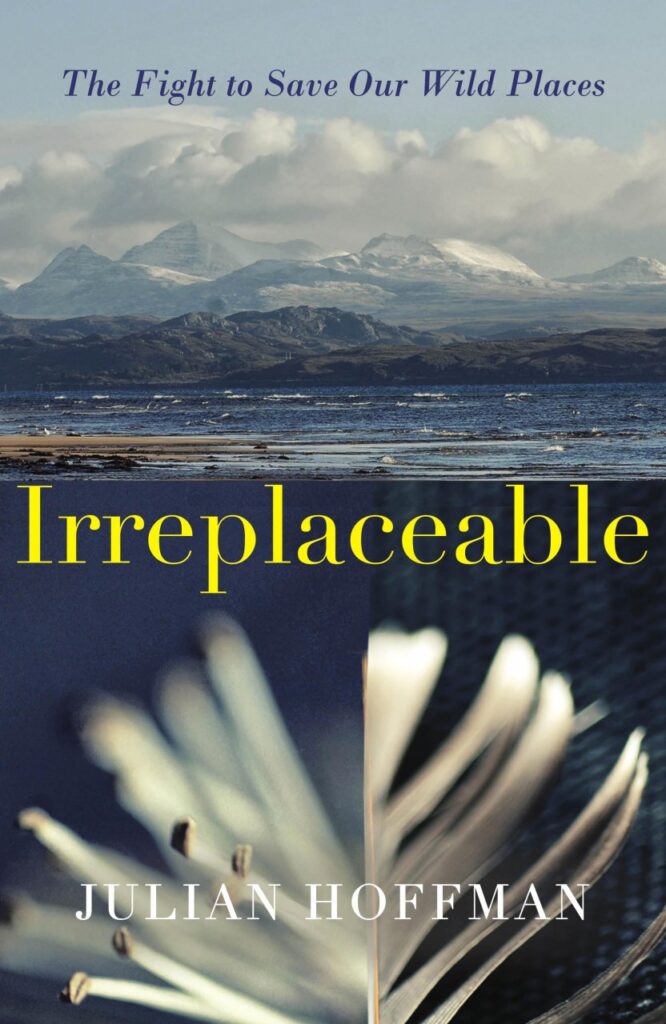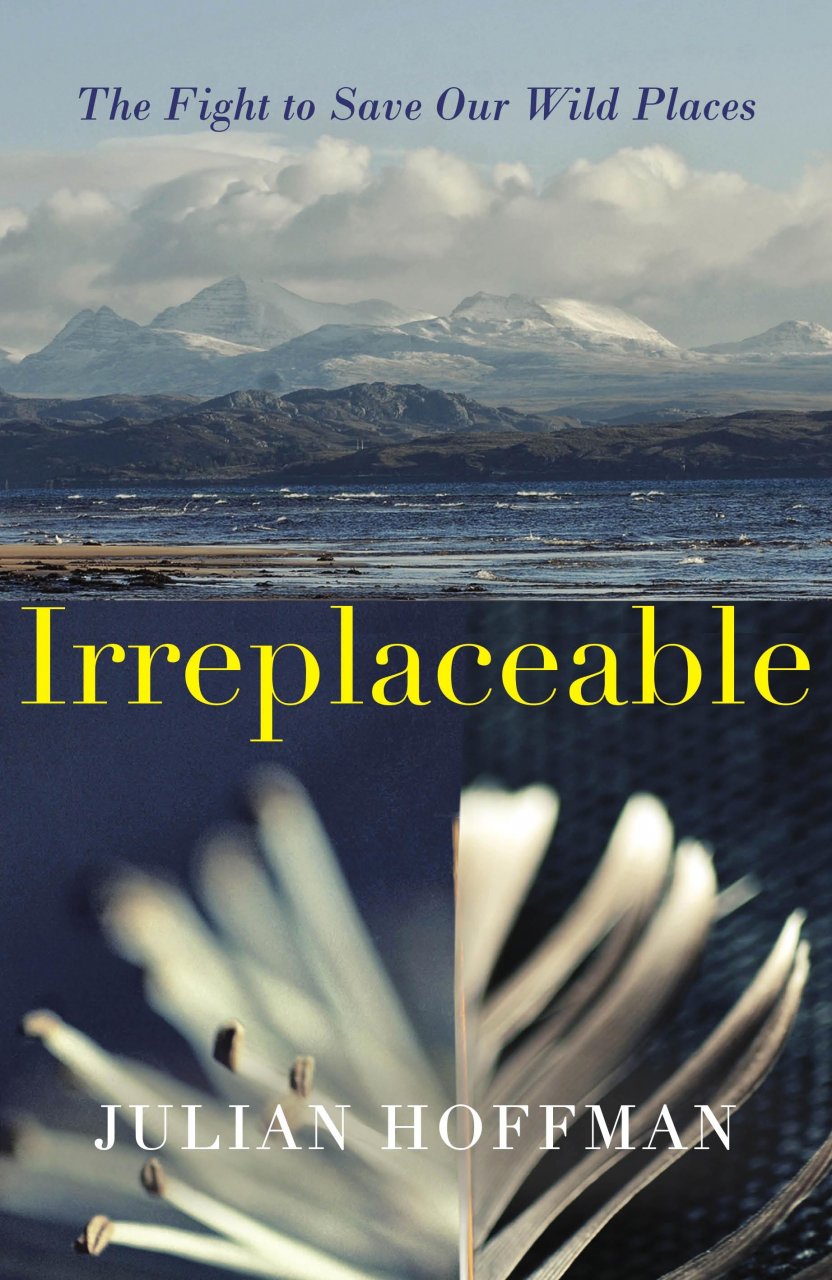View this book on the NHBS website
A little over four years ago, back in those halcyon days before Brexit turned everything upside down, I was approached by Julian Hoffman, who was interested in visiting an old military base in Kent called Lodge Hill, which was due to be converted into a new town of 5,000 houses. I had been doing some work for the RSPB in investigating the value of Lodge Hill for its grassland wildlife – others were looking at the Nightingales and other things. It was, and amazingly still is, a magical and dark place, full of hidden treasures, both natural and historic – particularly the history of ordnance, from storing naval gunpowder and First World War practice trenches to clearing IEDs from Belfast housing estates and Basra’s streets. I visited Lodge Hill with Hoffman in 2015, and then with a larger group of writers, artists and historians in the following year for a People Need Nature project. Three years later these experiences are encapsulated in Hoffman’s epic book, Irreplaceable.
Irreplaceable is an exploration of places, the nature of those places, the people who care about them; and the experiences that the places and their nature create for people. Hoffman ranges widely across the globe in his search for an explanation of why people care so much about places, especially those where nature thrives. Our Lodge Hill visit was part of a larger exploration by Hoffman, of the Hoo Peninsula in Kent, triggered by proposals from our current Prime Minister (at time of writing) Boris Johnson, when he was Mayor of London, to build a massive artificial island and new airport in the Thames Estuary. It became known as ‘Boris Island’. The development would have obliterated the internationally important grazing marsh, saltmarsh and mudflats around the Hoo Peninsula and Thames and Medway Estuaries, regardless of their protection under EU law.
Boris Island was never built, or at least it has not yet been built, and nor has the Lodge Hill new town. Hoffman’s guide around the Hoo Peninsula was the doughty campaigner Gill Moore, of Friends of the North Kent marshes. Sadly, Gill died before Irreplaceable was published, and Hoffman dedicates the book to her and to her fellow campaigner Owen Sweeney, who also died before publication. Gill, Owen and the many other individuals and organisations who campaigned to save the North Kent Marshes – and subsequently Lodge Hill – are feted by Hoffman, and illustrate the power that resides in people who care and are willing to stand up for the places they love.
Hoffman explores the inter-relationship between people, nature and place through a series of stories, each of which studies a particular place, and the threats they face. Smithy Wood, in Yorkshire, is threatened by the building of a new motorway service station. The Gwent Levels were due to be trashed by the M4 relief road (now cancelled). There is a remarkable story of Glasgow’s North Kelvin Meadow – what many would dismiss as a valueless urban brownfield site – which has been transformed by the local community into an incredible place, where nature thrives and people cherish it, not as a nature reserve, but as a place where people gather and just do normal everyday things: chat, have a cup of tea (or something a bit stronger) or a barbeque, or let their children play. Needless to say, the Council wants to sell it off for housing development. There is fierce resistance, as there is against plans to build houses on a much-loved allotment site in Watford.
Farther afield we meet the fishing community of Bangka island, in the western Java Sea, where the coral is threatened by an illegal mining development on the island. Other stories include the fight to save the Balkan Lynx, Californian Redwoods, and the indigenous Nyishi people of Assam who are changing their own traditions to save the hornbills they used to adorn their ceremonial headgear. Hoffman is attuned to the fact that, in many parts of the world (though not necessarily in the UK), there is a very strong spiritual component to the way in which people value nature. For some readers this may provoke feelings of discomfort, as we tend to focus on the scientific approach to valuing nature. You will not find much mention of ecosystem services or natural capital in this book.
These stories are also illustrative of loss. Nature is disappearing, across the world. Hoffman is not shy of writing about this loss – he does not seek to paint the picture presented to us by so many glossy, beautifully shot BBC wildlife documentaries, the cameras carefully angled so as to suggest pristine wilderness:
‘Oliver Rackham recorded four kinds of loss in the landscape: the loss of beauty, freedom, wildlife and meaning. I’d like to add one more, a loss both cumulative and overarching, knotting the other four into an ever-lengthening rope of disappearances: the loss of connection. The gradual severance of our relationships with the natural world stems, at least in part, from a lack of experience with it in our immediate surroundings.’
Irreplaceable is a compelling read, not least because Hoffman is a natural storyteller and these are incredible stories, both uplifting and tragic. Some of the passages verge towards the poetic end of the nature-writing spectrum and are imbued with an emotional intensity that reflects the challenges which the people whom he meets are facing, as they struggle to defend the nature and places they love. And this applies whether the stories are about allotments in Watford or Corals in the Philippines: the people who care about the places, and the nature of those places, are the heroes. Their stories need to be told, so that more people can believe that change is possible.

